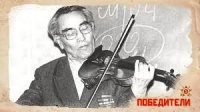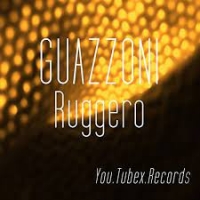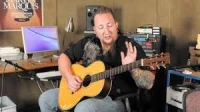Violin Sheet Music
 "George Harrison and John Lennon were the ones most against touring ... I'd been trying to say ..Ah, tourings good and it keeps us sharp .. but finally I agreed with them" Paul McCartney / Beatles / Wings
"George Harrison and John Lennon were the ones most against touring ... I'd been trying to say ..Ah, tourings good and it keeps us sharp .. but finally I agreed with them" Paul McCartney / Beatles / Wings
Bach

Johann Sebastian Bach (31 March 1685 – 28 July 1750) was a German composer and organist whose sacred and secular works for choir, orchestra, and solo instruments drew together the strands of the Baroque period and brought it to its ultimate maturity. Although he introduced no new forms, he enriched the prevailing German style with a robust contrapuntal technique, an unrivalled control of harmonic and motivic organisation in composition for diverse musical forces, and the adaptation of rhythms and textures from abroad, particularly Italy and France.
Revered for their intellectual depth and technical and artistic beauty, Bach's works include the Brandenburg concertos; the Goldberg Variations; the English Suites, French Suites, Partitas, and Well-Tempered Clavier; the Mass in B Minor; the St. Matthew Passion; the St. John Passion; The Musical Offering; The Art of Fugue; the Sonatas and Partitas for violin solo; the Cello Suites; more than 200 surviving cantatas; and a similar number of organ works, including the celebrated Toccata and Fugue in D Minor.
While Bach's fame as an organist was great during his lifetime, he was not particularly well-known as a composer. His adherence to Baroque forms and contrapuntal style was considered "old-fashioned" by his contemporaries, especially late in his career when the musical fashion tended towards Rococo and later Classical styles. A revival of interest and performances of his music began early in the 19th century, and he is now widely considered to be one of the greatest composers in the Western tradition.
Revered for their intellectual depth and technical and artistic beauty, Bach's works include the Brandenburg concertos; the Goldberg Variations; the English Suites, French Suites, Partitas, and Well-Tempered Clavier; the Mass in B Minor; the St. Matthew Passion; the St. John Passion; The Musical Offering; The Art of Fugue; the Sonatas and Partitas for violin solo; the Cello Suites; more than 200 surviving cantatas; and a similar number of organ works, including the celebrated Toccata and Fugue in D Minor.
While Bach's fame as an organist was great during his lifetime, he was not particularly well-known as a composer. His adherence to Baroque forms and contrapuntal style was considered "old-fashioned" by his contemporaries, especially late in his career when the musical fashion tended towards Rococo and later Classical styles. A revival of interest and performances of his music began early in the 19th century, and he is now widely considered to be one of the greatest composers in the Western tradition.
Thomas Lupo
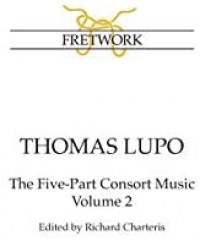
Thomas Lupo (baptised 7 August 1571 – probably December 1627) was an English composer and viol player of the late Elizabethan and Jacobean eras. Along with Orlando Gibbons, John Coprario, and Alfonso Ferrabosco, he was one of the principal developers of the repertory for viol consort.
Cyndi Lauper

Cynthia Ann Stephanie "Cyndi" Lauper (born June 22, 1953) is an American Grammy- and Emmy-award winning singer-songwriter and actress. She achieved success in the mid-1980s with the release of the album She's So Unusual and became the first artist to have four top-five singles released from one album. Lauper has released 11 albums and over 40 singles, and as of 2008 had sold more than 25 million albums worldwide. She continues to tour the world, often in support of human rights.
Lauper recorded an album of all new material during 2007. The working title given to the project was Savoir-faire, but she announced at her Perth, Australia concert in February 2008 that the name of the album was Bring Ya to the Brink and that it would be released in the spring. In preparation for the album, Lauper visited England and France during summer 2007 to write for the album and wrote songs with dance artists The Scumfrog, Basement Jaxx, Digital Dog, Dragonette, Kleerup and others. She described it as a mainly dance album with good rhythm. Most of the album was recorded in Sweden.
In December 2008, Bring Ya to the Brink was nominated for a Grammy Award for Best Electronic/Dance Album. Lauper also signed a book deal for an autobiography that is scheduled to come out at the end of 2009 or early 2010.
Lauper recorded an album of all new material during 2007. The working title given to the project was Savoir-faire, but she announced at her Perth, Australia concert in February 2008 that the name of the album was Bring Ya to the Brink and that it would be released in the spring. In preparation for the album, Lauper visited England and France during summer 2007 to write for the album and wrote songs with dance artists The Scumfrog, Basement Jaxx, Digital Dog, Dragonette, Kleerup and others. She described it as a mainly dance album with good rhythm. Most of the album was recorded in Sweden.
In December 2008, Bring Ya to the Brink was nominated for a Grammy Award for Best Electronic/Dance Album. Lauper also signed a book deal for an autobiography that is scheduled to come out at the end of 2009 or early 2010.
Traditional

traditional music
Rodolphe Kreutzer
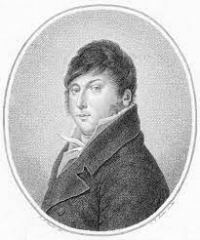
Rodolphe Kreutzer (15 November 1766 – 6 January 1831) was a French violinist, teacher, conductor, and composer of forty French operas, including La mort d'Abel (1810).He is probably best known as the dedicatee of Beethoven's Violin Sonata No. 9, Op. 47 (1803), known as the Kreutzer Sonata, though he never played the work. Kreutzer made the acquaintance of Beethoven in 1798, when at Vienna in the service of the French ambassador, Jean-Baptiste Bernadotte (later King of Sweden and Norway). Beethoven originally dedicated the sonata to George Bridgetower, the violinist at its first performance, but after a quarrel he revised the dedication in favour of Kreutzer.
José Barros
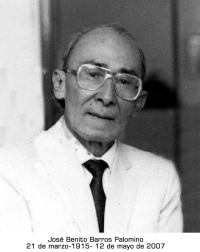
José Benito Barros or simply José Barros was a prominent Colombian musician, and composer of more than 800 songs in genres including cumbia, porro, merengue, currulao, paseo, bolero and tango.
Giles Farnaby
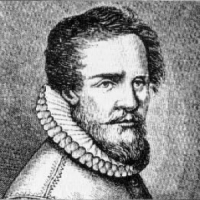
Giles Farnaby (c. 1563 – November 1640) was an English composer and virginalist whose music spans the transition from the Renaissance to the Baroque period.Giles Farnaby was born about 1563, perhaps in Truro, Cornwall or near London. His father, Thomas, was a Cittizen and Joyner of London, and Giles may have been related to Thomas Farnaby (c. 1575–1647), the famous schoolmaster of Kent, whose father was a carpenter. But it was his cousin Nicholas Farnaby (c. 1560–1630), who may have turned him to music. Nicholas was a virginal maker, at this time a generic word that included the entire family of plucked keyboard instruments: the harpsichord, virginal, muselar and doubtless the clavichord, and it is for these instruments that Farnaby's compositions are best known. Like his father however, Giles trained as a joiner or cabinet-maker, starting his apprenticeship in about 1583, and gave this trade as his occupation for most of his life.
Samurai Champloo

Break-dancing but fierce warrior Mugen has to deal with the cold-blooded and conceited Jin, a samurai who believes he is above all. These sworn enemies are brought together by Fuu for a special task.
Sam Franko
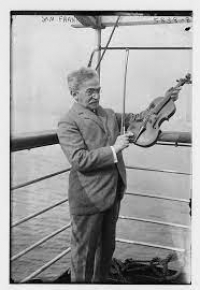
Sam Franko was an American violinist and conductor. He was the brother of violinist, conductor and concert promoter Nahan Franko. A native of New Orleans, Franko studied the violin in Europe, working with Joseph Joachim and Henri Vieuxtemps among others.
Felix Mendelssohn Bartholdy
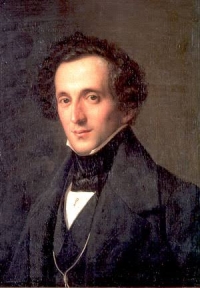
Jakob Ludwig Felix Mendelssohn Bartholdy, born and widely known as Felix Mendelssohn, was a German composer, pianist, organist and conductor of the early Romantic period. Mendelssohn's compositions include symphonies, concertos, piano music and chamber music.
Daniel Simpson
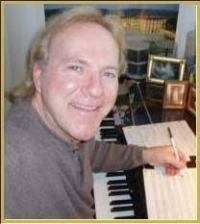
Daniel Léo Simpson, an award-winning American Composer with a flair for creating "contagious" and engaging music, specializes in unusual, interesting and dynamic works of every genre. From concerti and symphonies to commercials and film music, he is distinguishing himself as unique in his field.
Arturo Marquez
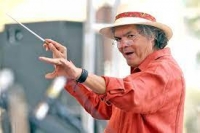
Arturo Márquez Navarro (born 20 December 1950) is a Mexican composer of orchestral music who uses musical forms and styles of his native Mexico and incorporates them into his compositions.Márquez was born in Álamos, Sonora, in 1950 where his interest in music began. Márquez is the first born of nine children of Arturo Márquez and Aurora Navarro. Márquez was the only one of the nine siblings who became a musician. Márquez's father was a mariachi musician in Mexico and later in Los Angeles and his paternal grandfather was a Mexican folk musician in the northern states of Sonora and Chihuahua. Because of Márquez's father and grandfather, he was exposed to several musical styles in his childhood, particularly Mexican "salon music" which would be the impetus for his later musical repertoire.
Francesco Geminiani
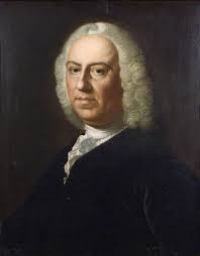
Francesco Saverio Geminiani (baptised 5 December 1687 – 17 September 1762) was an Italian violinist, composer, and music theorist. BBC Radio 3 once described him as "now largely forgotten, but in his time considered almost a musical god, deemed to be the equal of Handel and Corelli."[2
Mozart

Wolfgang Amadeus Mozart, full name Johann Chrysostom Wolfgang Amadeus Mozart (27 January 1756 â 5 December 1791) was a prolific and influential composer of the Classical era. His over 600 compositions include works widely acknowledged as pinnacles of symphonic, concertante, chamber, piano, operatic, and choral music. Mozart is among the most enduringly popular of classical composers, and many of his works are part of the standard concert repertoire.
Mozart's music, like Haydn's, stands as an archetypal example of the Classical style. His works spanned the period during which that style transformed from one exemplified by the style galant to one that began to incorporate some of the contrapuntal complexities of the late Baroque, complexities against which the galant style had been a reaction. Mozart's own stylistic development closely paralleled the development of the classical style as a whole. In addition, he was a versatile composer and wrote in almost every major genre, including symphony, opera, the solo concerto, chamber music including string quartet and string quintet, and the piano sonata. While none of these genres were new, the piano concerto was almost single-handedly developed and popularized by Mozart. He also wrote a great deal of religious music, including masses; and he composed many dances, divertimenti, serenades, and other forms of light entertainment.
The central traits of the classical style can be identified in Mozart's music. Clarity, balance, and transparency are hallmarks of his work.
Mozart's music, like Haydn's, stands as an archetypal example of the Classical style. His works spanned the period during which that style transformed from one exemplified by the style galant to one that began to incorporate some of the contrapuntal complexities of the late Baroque, complexities against which the galant style had been a reaction. Mozart's own stylistic development closely paralleled the development of the classical style as a whole. In addition, he was a versatile composer and wrote in almost every major genre, including symphony, opera, the solo concerto, chamber music including string quartet and string quintet, and the piano sonata. While none of these genres were new, the piano concerto was almost single-handedly developed and popularized by Mozart. He also wrote a great deal of religious music, including masses; and he composed many dances, divertimenti, serenades, and other forms of light entertainment.
The central traits of the classical style can be identified in Mozart's music. Clarity, balance, and transparency are hallmarks of his work.
Ennio Morricone
Ennio Morricone, OMRI (born November 10, 1928), is an Italian composer and conductor. He has composed and arranged scores for more than 500 film and television productions. Morricone is considered as one of the most influential film composers since the late 1950s. He is well-known for his long-term collaborations with international acclaimed directors such as Sergio Leone, Brian De Palma, Barry Levinson, and Giuseppe Tornatore.
He wrote the characteristic film scores of Leone's Spaghetti Westerns A Fistful of Dollars (1964), For a Few Dollars More (1965), The Good, the Bad and the Ugly (1966), Once Upon a Time in the West (1968), The Great Silence (1968), and My Name Is Nobody (1973). In the 80s, Morricone composed the scores for John Carpenter's horror movie The Thing (1982), Leone's Once Upon a Time in America (1984), Roland Joffé's The Mission (1986), Brian De Palma's The Untouchables (1987) and Giuseppe Tornatore's Cinema Paradiso (1988).
His more recent compositions include the scores for Oliver Stone's U Turn (1997), Tornatore's The Legend of 1900 (1998) and Malèna (2000), Mission to Mars (2000) by Brian De Palma, Fateless (2005), and Baaria - La porta del vento (2009). Ennio Morricone has won two Grammy Awards, two Golden Globes and five Anthony Asquith Awards for Film Music by BAFTA in 1979–1992. He has been nominated for five Academy Awards for Best Music, Original Score in 1979–2001. Morricone received the Honorary Academy Award in 2007 "for his magnificent and multifaceted contributions to the art of film music". He was the second composer to receive this award after its introduction in 1928.
He wrote the characteristic film scores of Leone's Spaghetti Westerns A Fistful of Dollars (1964), For a Few Dollars More (1965), The Good, the Bad and the Ugly (1966), Once Upon a Time in the West (1968), The Great Silence (1968), and My Name Is Nobody (1973). In the 80s, Morricone composed the scores for John Carpenter's horror movie The Thing (1982), Leone's Once Upon a Time in America (1984), Roland Joffé's The Mission (1986), Brian De Palma's The Untouchables (1987) and Giuseppe Tornatore's Cinema Paradiso (1988).
His more recent compositions include the scores for Oliver Stone's U Turn (1997), Tornatore's The Legend of 1900 (1998) and Malèna (2000), Mission to Mars (2000) by Brian De Palma, Fateless (2005), and Baaria - La porta del vento (2009). Ennio Morricone has won two Grammy Awards, two Golden Globes and five Anthony Asquith Awards for Film Music by BAFTA in 1979–1992. He has been nominated for five Academy Awards for Best Music, Original Score in 1979–2001. Morricone received the Honorary Academy Award in 2007 "for his magnificent and multifaceted contributions to the art of film music". He was the second composer to receive this award after its introduction in 1928.
Charles Gounod

Charles-François Gounod (/ɡuːˈnoʊ/; French: ; 17 June 1818 – 17 or 18 October 1893) was a French composer, best known for his Ave Maria, based on a work by Bach, as well as his opera Faust. Another opera by Gounod that is still performed today is Roméo et Juliette.
Gounod died at Saint-Cloud in 1893, after a final revision of his twelve operas. His funeral took place ten days later at the Church of the Madeleine, with Camille Saint-Saëns playing the organ and Gabriel Fauré conducting. He was buried at the Cimetière d'Auteuil in Paris.
Gounod died at Saint-Cloud in 1893, after a final revision of his twelve operas. His funeral took place ten days later at the Church of the Madeleine, with Camille Saint-Saëns playing the organ and Gabriel Fauré conducting. He was buried at the Cimetière d'Auteuil in Paris.
Pierre Rode
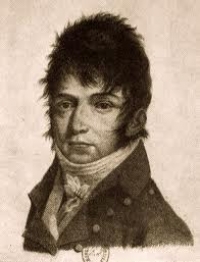
Jacques Pierre Joseph Rode (16 February 1774 – 25 November 1830) was a French violinist and composer.
Born in Bordeaux, Aquitaine, France, Pierre Rode traveled to Paris at the age of 13 and soon became a favourite pupil of the great Giovanni Battista Viotti who found the boy so talented that he charged him no fee for the lessons. Rode inherited his teacher's style to which he added more mildness and a more refined tone. It is also recorded that he made extensive use of portamento. He collaborated with Baillot and Kreutzer on the official Violin Method of the Conservatoire of Paris, published in 1802.
Rode served as violin soloist to Napoleon I of France and toured extensively in the Netherlands, Germany, England and Spain, staying with François-Adrien Boïeldieu in Saint Petersburg for 1804-1809, and later spending much time in Moscow. Ludwig van Beethoven wrote his last violin sonata (opus 96) for Rode when the violinist was visiting Vienna. He also performed chamber music, but the backbone of his repertoire was formed by Viotti's concertos which served as models for his own concertos. These, as well as the 24 Caprices (which have been recorded by Oscar Shumsky), were written during 1814-1819 when he lived in Berlin.
Born in Bordeaux, Aquitaine, France, Pierre Rode traveled to Paris at the age of 13 and soon became a favourite pupil of the great Giovanni Battista Viotti who found the boy so talented that he charged him no fee for the lessons. Rode inherited his teacher's style to which he added more mildness and a more refined tone. It is also recorded that he made extensive use of portamento. He collaborated with Baillot and Kreutzer on the official Violin Method of the Conservatoire of Paris, published in 1802.
Rode served as violin soloist to Napoleon I of France and toured extensively in the Netherlands, Germany, England and Spain, staying with François-Adrien Boïeldieu in Saint Petersburg for 1804-1809, and later spending much time in Moscow. Ludwig van Beethoven wrote his last violin sonata (opus 96) for Rode when the violinist was visiting Vienna. He also performed chamber music, but the backbone of his repertoire was formed by Viotti's concertos which served as models for his own concertos. These, as well as the 24 Caprices (which have been recorded by Oscar Shumsky), were written during 1814-1819 when he lived in Berlin.
Carlos Diaz
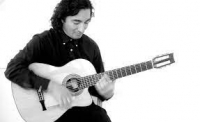
Carlos Diaz Musician Songs Caracas Lo Mejor de Su Repertorio · 2005 Las Pilanderas Lo Mejor de Su Repertorio · 2005
Llévame Llévame · 2019
Llévame Llévame · 2019
ngo thuy mien
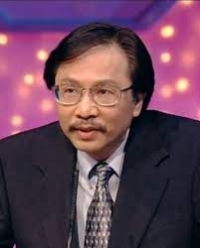
Ngô Quang Bình (sinh ngày 26 tháng 9 năm 1948), nghệ danh là Ngô Thụy Miên, là một nhạc sĩ thành danh tại Sài Gòn (Việt Nam) từ trước năm 1975, hiện đang cư trú tại Hoa Kỳ.Nhạc sĩ Ngô Thụy Miên sinh ngày 26 tháng 9 năm 1948 tại Hải Phòng, và là con thứ hai trong một gia đình bảy người con. Ông lớn lên trong môi trường sách vở và thơ văn, do gia đình ông có mở một nhà sách tên Thanh Bình ở thành phố Hải Phòng, và sau này ở trên đường Phan Đình Phùng (nay là đường Nguyễn Đình Chiểu) khi vào định cư ở Sài Gòn. Tại đây, ông học trường Trung học Nguyễn Trãi. và sau đó là Trường Đại học Khoa học Sài Gòn.
Luigi Boccherini
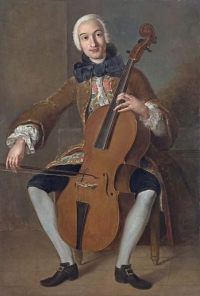
Ridolfo Luigi Boccherini (/ˌbɒkəˈriːni/, also US: /ˌboʊk-/, Italian: (About this soundlisten); 19 February 1743 – 28 May 1805) was an Italian, later Spanish, composer and cellist of the Classical era whose music retained a courtly and galante style even while he matured somewhat apart from the major European musical centers. He is best known for a minuet from his String Quintet in E, Op. 11, No. 5 (G 275), and the Cello Concerto in B flat major (G 482). The latter work was long known in the heavily altered version by German cellist and prolific arranger Friedrich Grützmacher, but has recently been restored to its original version.
Vittorio Monti

Vittorio Monti (6 January 1868 – 20 June 1922) was an Italian composer, violinist, and conductor. Monti was born in Naples where he studied violin and composition at the Conservatorio di San Pietro a Majella. Around 1900 he got an assignment as the conductor for the Lamoureux Orchestra in Paris, where he wrote several ballets and operettas, for example Noël de Pierrot.
His only famous work is his Csárdás, written around 1904 and played by almost every gypsy orchestra.
His only famous work is his Csárdás, written around 1904 and played by almost every gypsy orchestra.
Tiny Snow Fairy Sugar

A Little Snow Fairy Sugar (ちっちゃな雪使いシュガー, Chitchana Yukitsukai Shugā) is a Japanese anime series developed by J.C.Staff. It premiered in Japan on TBS on October 2, 2001, and ran for 24 episodes until its conclusion March 26, 2002. A two-episode OVA was also released for the series. The series was licensed for North America by Geneon Entertainment, but after the closure of Geneon, its DVD releases went out of print. In 2009, Sentai Filmworks had acquired the license.
The Pretenders
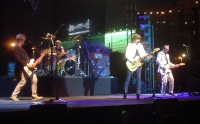
The Pretenders are an English rock band formed in 1978. The original band consisted of initiator and main songwriter Chrissie Hynde (lead vocals, rhythm guitar), James Honeyman-Scott (lead guitar, backing vocals, keyboards), Pete Farndon (bass guitar, backing vocals), and Martin Chambers (drums, backing vocals, percussion). The band was impaired by drug-related deaths and numerous subsequent personnel changes have taken place over the years, with Hynde as the sole continual member.
Ludwig van Beethoven

Ludwig van Beethoven (/ˈlʊdvɪɡ væn ˈbeɪt(h)oʊvən/ (About this soundlisten); German: (About this soundlisten); baptised 17 December 1770 – 26 March 1827) was a German composer and pianist. A crucial figure in the transition between the classical and romantic eras in classical music, he remains one of the most recognized and influential musicians of this period, and is considered to be one of the greatest composers of all time.
Beethoven was born in Bonn, the capital of the Electorate of Cologne, and part of the Holy Roman Empire. He displayed his musical talents at an early age and was vigorously taught by his father Johann van Beethoven, and was later taught by composer and conductor Christian Gottlob Neefe. At age 21, he moved to Vienna and studied composition with Joseph Haydn. Beethoven then gained a reputation as a virtuoso pianist, and was soon courted by Prince Lichnowsky for compositions, which resulted in Opus 1 in 1795.
Beethoven was born in Bonn, the capital of the Electorate of Cologne, and part of the Holy Roman Empire. He displayed his musical talents at an early age and was vigorously taught by his father Johann van Beethoven, and was later taught by composer and conductor Christian Gottlob Neefe. At age 21, he moved to Vienna and studied composition with Joseph Haydn. Beethoven then gained a reputation as a virtuoso pianist, and was soon courted by Prince Lichnowsky for compositions, which resulted in Opus 1 in 1795.
Vivaldi

Antonio Lucio Vivaldi (March 4, 1678 â July 28, 1741), nicknamed il Prete Rosso ("The Red Priest"), was a Venetian priest and Baroque music composer, as well as a famous virtuoso violinist; he was born and raised in the Republic of Venice. The Four Seasons, a series of four violin concerti, is his best-known work and a highly popular Baroque piece.
Many of Vivaldi's compositions reflect a flamboyant, almost playful, exuberance. Most of Vivaldi's repertoire was rediscovered only in the first half of the 20th century in Turin and Genoa and was published in the second half. Vivaldi's music is innovative, breaking a consolidated tradition in schemes; he gave brightness to the formal and the rhythmic structure of the concerto, repeatedly looking for harmonic contrasts and innovative melodies and themes. Moreover, Vivaldi was able to compose nonacademic music, particularly meant to be appreciated by the wide public and not only by an intellectual minority. The joyful appearance of his music reveals in this regard a transmissible joy of composing; these are among the causes of the vast popularity of his music. This popularity soon made him famous in other countries such as France which was, at the time, very independent concerning its musical taste.
Vivaldi is considered one of the composers who brought Baroque music (with its typical contrast among heavy sonorities) to evolve into a classical style. Johann Sebastian Bach was deeply influenced by Vivaldi's concertos and arias (recalled in his Johannes Passion, Matthäuspassion, and cantatas). Bach transcribed a number of Vivaldi's concerti for solo keyboard, along with a number for orchestra, including the famous Concerto for Four Violins and Violoncello, Strings and Continuo (RV 580).
Many of Vivaldi's compositions reflect a flamboyant, almost playful, exuberance. Most of Vivaldi's repertoire was rediscovered only in the first half of the 20th century in Turin and Genoa and was published in the second half. Vivaldi's music is innovative, breaking a consolidated tradition in schemes; he gave brightness to the formal and the rhythmic structure of the concerto, repeatedly looking for harmonic contrasts and innovative melodies and themes. Moreover, Vivaldi was able to compose nonacademic music, particularly meant to be appreciated by the wide public and not only by an intellectual minority. The joyful appearance of his music reveals in this regard a transmissible joy of composing; these are among the causes of the vast popularity of his music. This popularity soon made him famous in other countries such as France which was, at the time, very independent concerning its musical taste.
Vivaldi is considered one of the composers who brought Baroque music (with its typical contrast among heavy sonorities) to evolve into a classical style. Johann Sebastian Bach was deeply influenced by Vivaldi's concertos and arias (recalled in his Johannes Passion, Matthäuspassion, and cantatas). Bach transcribed a number of Vivaldi's concerti for solo keyboard, along with a number for orchestra, including the famous Concerto for Four Violins and Violoncello, Strings and Continuo (RV 580).
Pablo de Sarasate

Pablo Martín Melitón de Sarasate y Navascués (10 March 1844 – 20 September 1908) was a Spanish violinist and composer of the Romantic period.
Vihula Michael
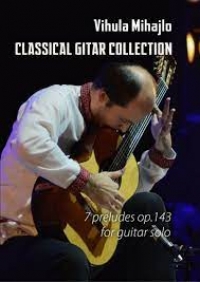
His parents are a music teachers, conductors and composers. Mykhaylo began studying the classical guitar
with J.Dubrovka and M.Matej at the School of Arts in Uzhgorod. In 1996 he entered the Uzhgorod State
Music College n.a. D.Zador (V.Roman and F.Smerichko), where during 4 years studied as guitarist and
conductor. 2000 he became a winner of the Ukrainian nation-wide competition “The new talents of
Ukraine”. Upon graduation from the Music College he continues his studies as classicalguitar and
composition at Lviv State Music Academy (classical guitar with Viktoria Sydorenko, conductering:
with J.Dubrovka and M.Matej at the School of Arts in Uzhgorod. In 1996 he entered the Uzhgorod State
Music College n.a. D.Zador (V.Roman and F.Smerichko), where during 4 years studied as guitarist and
conductor. 2000 he became a winner of the Ukrainian nation-wide competition “The new talents of
Ukraine”. Upon graduation from the Music College he continues his studies as classicalguitar and
composition at Lviv State Music Academy (classical guitar with Viktoria Sydorenko, conductering:
F Auber
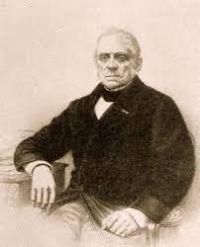
Daniel François Esprit Auber (29 January 1782, Caen - 13 May 1871, Paris) was a French composer.Despite his father's attempts to become a merchant, Auber turned to composition at an early age and went to London to teach music. Returning to Paris in 1804, Auber devoted himself entirely to art. his first opera in 1811; He wrote "Julie", attracted the attention of the Italian composer Cherubini, and became known all over the world for his works of art. She made history with the "Mute Girl with Porticili" written in 1828, and then continued to compose light operas.
Henryk Wieniawski

Henryk Wieniawski (10 July 1835 – 31 March 1880) was a Polish violinist and composer. He was considered a violinist of genius and wrote some of the most important works in the violin repertoire, including two extremely difficult violin concertos, the second of which (in D minor, 1862) is more often performed than the first (in F♯ minor, 1853). His "L'Ecole Moderne, 10 Etudes-Caprices" is a very well known and required work for aspiring violinists. His Scherzo-Tarantelle, Op. 16 and Légende, Op. 17 are also frequently performed works. He also wrote two popular mazurkas for solo violin and piano accompaniment (the second one, Obertas, in G Major), using techniques such as left-hand pizzicato, harmonics, large leaps, and many double stops. Wieniawski has been given a number of posthumous honors. His portrait appeared on a postage stamp of Poland in 1952 and again in 1957. A 100 Złoty coin was issued in 1979 bearing his image.
What is sometimes called the "Russian bow grip" ought to be called the "Wieniawski bow grip": Wieniawski taught his students his own kind of very stiff bowing that allowed him to play a "devil's staccato" with ease. This "devil's staccato" was easily used to discipline students.
What is sometimes called the "Russian bow grip" ought to be called the "Wieniawski bow grip": Wieniawski taught his students his own kind of very stiff bowing that allowed him to play a "devil's staccato" with ease. This "devil's staccato" was easily used to discipline students.
David Hurtado
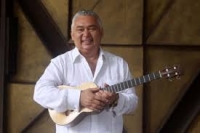
David Hurtado Musical artist Songs Le Cygne Piezas para Flauta y Piano (Pieces for Flute And Piano) · 2013
Estudio para Piano, Op. 100: Arabescos J. F. Burgmüller: 25 Estudios Para Piano & Muzio Clementi: Sonatinas Para Piano · 2013 Música Española para Flauta Del Siglo XIX
Estudio para Piano, Op. 100: Arabescos J. F. Burgmüller: 25 Estudios Para Piano & Muzio Clementi: Sonatinas Para Piano · 2013 Música Española para Flauta Del Siglo XIX
juan gabriel
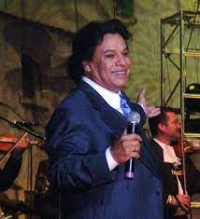
Alberto Aguilera Valadez (known as Juan Gabriel or simply Juanga; January 7, 1950 - August 28, 2016), Mexican singer and songwriter. Gabriel was the highest paid musician among Spanish singing musicians.
Having a star on the Hollywood Walk of Fame, the powerful voice of Latin America, Gabriel's albums have been sold more than 100 million times. The talented singer, who successfully represented Mexico in music, died at his home in California on August 28, 2016 at the age of 66. [
Having a star on the Hollywood Walk of Fame, the powerful voice of Latin America, Gabriel's albums have been sold more than 100 million times. The talented singer, who successfully represented Mexico in music, died at his home in California on August 28, 2016 at the age of 66. [
W.A. Mozart

Wolfgang Amadeus Mozart (German: , full baptismal name Johannes Chrysostomus Wolfgangus Theophilus Mozart (27 January 1756 – 5 December 1791), was a prolific and influential composer of the Classical era. He composed over 600 works, many acknowledged as pinnacles of symphonic, concertante, chamber, piano, operatic, and choral music. He is among the most enduringly popular of classical composers.
Mozart showed prodigious ability from his earliest childhood in Salzburg. Already competent on keyboard and violin, he composed from the age of five and performed before European royalty; at 17 he was engaged as a court musician in Salzburg, but grew restless and traveled in search of a better position, always composing abundantly. While visiting Vienna in 1781, he was dismissed from his Salzburg position. He chose to stay in the capital, where he achieved fame but little financial security. During his final years in Vienna, he composed many of his best-known symphonies, concertos, and operas, and the Requiem. The circumstances of his early death have been much mythologized. He was survived by his wife Constanze and two sons.
Mozart learned voraciously from others, and developed a brilliance and maturity of style that encompassed the light and graceful along with the dark and passionate—the whole informed by a vision of humanity "redeemed through art, forgiven, and reconciled with nature and the absolute." His influence on subsequent Western art music is profound. Beethoven wrote his own early compositions in the shadow of Mozart, of whom Joseph Haydn wrote that "posterity will not see such a talent again in 100 years."
Mozart showed prodigious ability from his earliest childhood in Salzburg. Already competent on keyboard and violin, he composed from the age of five and performed before European royalty; at 17 he was engaged as a court musician in Salzburg, but grew restless and traveled in search of a better position, always composing abundantly. While visiting Vienna in 1781, he was dismissed from his Salzburg position. He chose to stay in the capital, where he achieved fame but little financial security. During his final years in Vienna, he composed many of his best-known symphonies, concertos, and operas, and the Requiem. The circumstances of his early death have been much mythologized. He was survived by his wife Constanze and two sons.
Mozart learned voraciously from others, and developed a brilliance and maturity of style that encompassed the light and graceful along with the dark and passionate—the whole informed by a vision of humanity "redeemed through art, forgiven, and reconciled with nature and the absolute." His influence on subsequent Western art music is profound. Beethoven wrote his own early compositions in the shadow of Mozart, of whom Joseph Haydn wrote that "posterity will not see such a talent again in 100 years."
Music theory

Music theory is the study of the practices and possibilities of music. The Oxford Companion to Music describes three interrelated uses of the term "music theory"
Ariel Lin

Ariel Lin Yi-chen is a Taiwanese actress and singer. She rose to fame for her role as Yuan Xiangqin in the Taiwanese drama It Started with a Kiss and the Chinese fantasy drama The Little Fairy.
Walter Rodi

Walter Rodi Musician Born: September 22, 1947 (age 75 years), Rome, Italy Songs Birds Waltz Safari · 2017 Jungle Tension World Safari 2012 Condor's Nest Epic Nature (Orchestral, Documentary, Cinematic) 2013 Forces of Nature
Epic Nature (Orchestral, Documentary, Cinematic) 2013.
Epic Nature (Orchestral, Documentary, Cinematic) 2013.
Sperion

Sperion Musician/band. Anime / Game / J-Drama / Japanese popular music and soundtrack transcriber / arranger.
Isaac Albeniz

Isaac Albéniz i Pascual (Spanish pronunciation: ) (May 29, 1860 – May 18, 1909) was a Spanish pianist and composer best known for his piano works based on folk music.
Albéniz’ Suite Española Op.47 is comprised mainly of pieces written in 1886, and grouped together in 1887 in honor of the Queen of Spain. Like many of Albéniz' piano pieces, these works are miniature tone pictures of different geographical regions and musical idioms of Spain. The eight original titles are Granada, Cataluna, Sevilla, Cadiz, Asturias, Aragon, Castilla and Cuba but only the first three titles and Cuba appeared in the original collection. The other pieces were published in later collections, often with different titles. The publisher Hofmeister published all eight titles of Suite Espanola in 1911 after Albéniz’ death, appropriating other pieces for the other four titles so those pieces do not always accurately reflect the geographic designation of the titles, most obviously in the case of Asturias (Leyenda) whose Andalusian flamenco rhythms bear little resemblance to the music of the northern province Asturias. The opus number 47 assigned by Hofmeister has no relation to any chronological order in Albéniz’ oeuvre, in which opus numbers were randomly given by publishers or by Albéniz himself, with some pieces appearing in more than one collection.
Albéniz’ Suite Española Op.47 is comprised mainly of pieces written in 1886, and grouped together in 1887 in honor of the Queen of Spain. Like many of Albéniz' piano pieces, these works are miniature tone pictures of different geographical regions and musical idioms of Spain. The eight original titles are Granada, Cataluna, Sevilla, Cadiz, Asturias, Aragon, Castilla and Cuba but only the first three titles and Cuba appeared in the original collection. The other pieces were published in later collections, often with different titles. The publisher Hofmeister published all eight titles of Suite Espanola in 1911 after Albéniz’ death, appropriating other pieces for the other four titles so those pieces do not always accurately reflect the geographic designation of the titles, most obviously in the case of Asturias (Leyenda) whose Andalusian flamenco rhythms bear little resemblance to the music of the northern province Asturias. The opus number 47 assigned by Hofmeister has no relation to any chronological order in Albéniz’ oeuvre, in which opus numbers were randomly given by publishers or by Albéniz himself, with some pieces appearing in more than one collection.
 Sheet Music Network is a site for those who wants to access popular sheet music easily,
letting them download the sheet music for free for trial purposes.
It's completely free to download and try the listed sheet music, but you have to delete the files after 24 hours of trial.
Don't forget, if you like the piece of music you have just learned playing,
treat the artist with respect, and go buy the original sheet music.
Sheet Music Network is a site for those who wants to access popular sheet music easily,
letting them download the sheet music for free for trial purposes.
It's completely free to download and try the listed sheet music, but you have to delete the files after 24 hours of trial.
Don't forget, if you like the piece of music you have just learned playing,
treat the artist with respect, and go buy the original sheet music.
